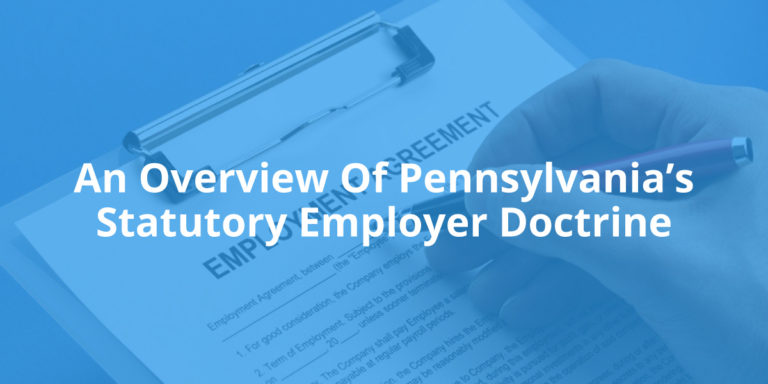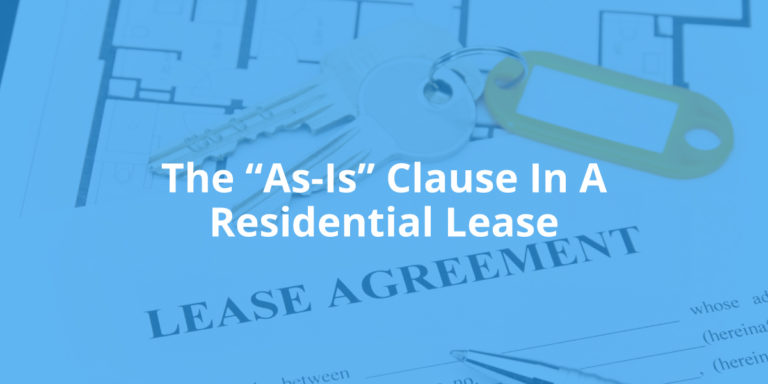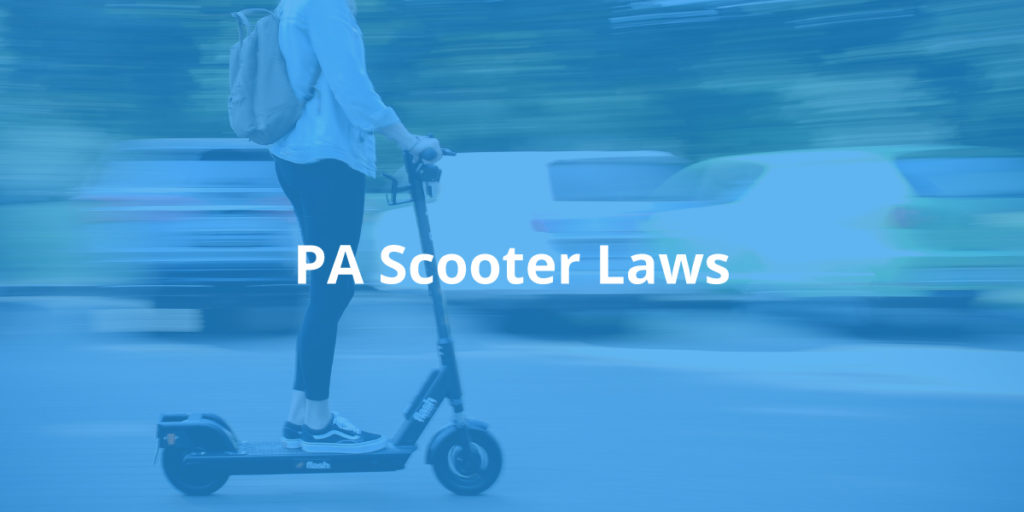
If you’ve visited Baltimore, Hoboken, New York City, Plainfield, Keyport, or Washington, D.C., you may have seen people zipping around on electric scooters. These scooters are a lot of fun, and are a low-cost way of getting around. So why don’t we have them in Pennsylvania?
The answer is relatively straightforward: Pennsylvania law does not permit electric scooters to be operated on its sidewalks or roads at the present time. However, this may change, sparking hope that Pennsylvania will soon join other states in having Lime, Bird and other types of dockless scooters available for rent.
Yet despite the cool factor of having electric scooters in your city or town, there is an aspect of danger. Riding an electric scooter presents certain risks, particularly if you aren’t wearing a helmet or if you are a novice rider. If you are injured in an electric scooter accident, a seasoned Philadelphia personal injury attorney may be able to help you recover for your losses.
How Does Pennsylvania Law Treat Electric Scooters?
Pennsylvania does not currently have a specific law that governs electric scooters. Instead, electric scooters are considered “motor-driven cycles.” These vehicles are defined as
“A motorcycle, including a motor scooter, with a motor which produces not to exceed five brake horsepower.”
Because electric scooters are considered motor-driven cycles under Pennsylvania law, they must comply with the laws and regulations applicable to motorcycles. This means that an electric scooter must be titled and registered and have proper insurance. It must also have the necessary equipment to pass insurance, such as turn signals, fenders, and lights.
Even if an electric scooter could meet these requirements, it could not be operated on roadways unless it were not powerful enough to keep up with other traffic. Under the Pennsylvania Vehicle Code, individuals are not permitted to drive a motor vehicle at such a slow speed so as to impede the normal and reasonable flow of traffic.
As a result, electric scooters are effectively banned in Pennsylvania. Electric scooters must be titled and registered, but as they do not comply with the equipment and inspection requirements for motor vehicles they cannot be titled or registered. They cannot be operated on roadways or streets in Pennsylvania.
However, Pennsylvania law does allow for the operation of “electric personal assortative mobility devices,” or EPAMD. This law specifically relates to devices such as Segways, where the wheels are not in tandem. EPAMDs are legally permitted to be operated on sidewalks and roads in Pennsylvania, unless specifically prohibited by local ordinance.
Will Pennsylvania’s Electric Scooter Laws Change?
While Pennsylvania currently does not permit the operation of electric scooters anywhere in the state, two legislators hope that this will change. State Representatives Greg Rothman and Stephen Kinsey have proposed House Bill 631 (HB 631), a bill that would amend the Pennsylvania Vehicle Code to define “electric low-speed scooters.”
According to Representatives Rothman and Kinsey, these scooters provide innovative, low-cost transportation to millions of riders across the United States. Allowing their use in Pennsylvania would relieve traffic congestion and pollution.
If the bill were to become law, the vehicle code would be expanded to include a definition of electric low-speed scooter as a device weighing less than 100 pounds with two or three wheels. This type of scooter would be powered by electric motor and/or human power, with a maximum speed of no more than 20 miles per hour on a paved level surface. A scooter would have a floorboard, handlebars and an electric motor.
Under HB 631, electric scooters would be exempt from the title and registration requirements. Generally, people riding electric scooters would have the same rights and obligations as those riding bicycles. However, their use would be limited to people aged 16 and older.
In addition, scooters could not be operated at a speed greater than 15 miles per hour, and must have lamps and reflectors. The lamps and reflectors must be used at times of low light. Finally, the scooters cannot be used on freeways.
Although some support the use of e-scooters in Pennsylvania, others — like the city of Philadelphia — are adamantly opposed to the use of these scooters. In October 2018, Philadelphia enacted a ban on the use of electric scooters due to concerns about traffic fatalities and congestion. If HB 631 becomes law, it may change that reality.
The Risks of Electric Scooters
The use of electric scooters in cities across the United States is relatively new. Nevertheless, the Centers for Disease Control and Prevention (CDC) has already undertaken a study on the dangers associated with these scooters.
According to the study, over an 87 day period in Austin, Texas, 271 people were identified as being injured in an e-scooter accident; their injuries were serious enough to warrant medical treatment in an emergency department. The majority (45%) of those interviewed suffered head injuries, while others suffered upper extremity fractures (27%) and lower extremity fractures (12%). 20% of those interviewed were hospitalized due to their injuries.
Most injuries involving electric scooters happened on the street (52%), and 18% involved motor vehicles. Fewer than 1% of all riders reported helmet use. Based on the CDC’s data, the injury incidence rate was 14.3 per 100,000 trips.
While this study is relatively limited, it does present a picture of how injuries and accidents happen when using electric scooters. Most people hop on these scooters without a helmet, and ride them on the street — where they are more likely to be hit by a car than on the sidewalk. Given these conditions, it isn’t surprising that so many riders suffer head injuries.
If Pennsylvania Legalizes Motor Scooters, How Will Personal Injury Cases Work?
Motor scooter legalization on Pennsylvania’s streets would bring with it motor scooter personal injury cases–if the experience of other states where the diminutive transports abound is any guide. Urban streets and sidewalks are full of dangers for motor scooter riders and pedestrians in their proximity. Broken bones, concussions, and muscular injuries result in hospital bills, physical therapy, pain and suffering, and lost income. When an accident occurs because of negligence, the at-fault party bears legal responsibility.
Types of Motor Scooter Accidents
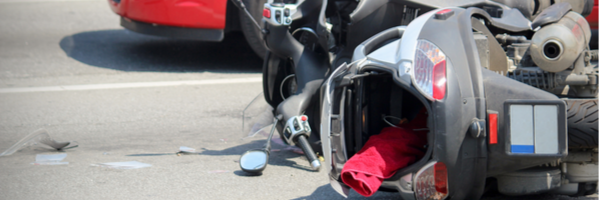
When traveling in dense regions, motor scooter riders encounter other vehicles, cyclists, and pedestrians. Collisions with all three have the potential to lead to a personal injury claim.
Vehicle to Motor Vehicle Accidents
If legalized in Pennsylvania, motor scooter riders and Bird customers will be flying up and down busy streets. The most considerable danger is to the motor scooter operator, who has little protection and may be thrown onto the pavement. If the accident involves serious injuries, a personal injury lawsuit will ensue.
The Question of Fault
Whether one party bears liability for the accident depends on whether negligence is involved. If a court determines that the driver was operating his or her vehicle in a careless, negligent, or illegal manner, it will likely assign liability to the driver. The following are common reasons that courts find drivers negligent:
Inattention
Pennsylvania law establishes an inherent duty of care to all motor vehicle operators. Part of this duty includes keeping an eye out for potential accidents and responding quickly to avoid or mitigate them. When a driver’s vigilance falters, accidents that should have been avoided cause devastating injuries.
Inattention may result from texting while driving, failure to watch the road or simple fatigue.
Speeding
When drivers are in a hurry or just not keeping an eye on the speedometer, they press the gas pedal far too aggressively. As a result, their vehicles crash into others because they cannot slow down or stop in time. The prevalence of speeding makes it a common cause of negligence.
Intoxicated Driving
Despite all the public service warnings, many people think they can drive without impairment while intoxicated, whether by drugs, alcohol, or medications. The tragic results of their bad judgment can be seen daily on the news. When impaired drivers cause injury accidents, they face liability for the harm to the victim and punitive damages.
Auto Insurance
While being struck by a vehicle can cause tremendous pain and suffering, there is some solace in the fact that most drivers are well-insured. Auto policies alleviate the problem of being hit by a driver that lacks the financial resources to pay compensation.
Cyclists and Pedestrians
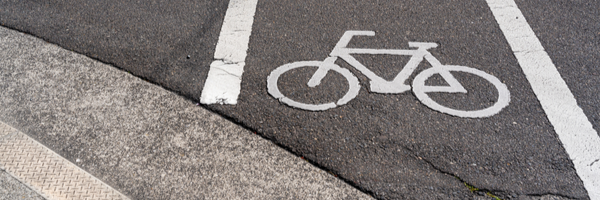
A motor scooter rider may collide with a cyclist or pedestrian. Because neither is in a large vehicle, injuries are likely to impact both parties. Whether a personal injury claim ensures depends on whether one or both parties were negligent.
Negligent Cyclist or Pedestrian
A cyclist, through carelessness or recklessness, may strike a motor scooter. If the scooter rider suffers an injury, the cyclist bears legal responsibility. The same applies to the reverse.
Insurance May Apply
Though auto insurance policies exclude accidents not involving a vehicle, other insurance policies may have applicable liability provisions.
For example, homeowners insurance provides liability coverage that extends to incidents occurring off the property. Wherever the insured goes, if he or she causes an accident, the policy may provide liability coverage. For example, if a cyclist, pedestrian, or motor scooter rider causes a collision, his or her homeowners policy may pay damages and legal fees, depending on who is at fault.
Umbrella Policies
In particularly severe motor scooter accidents, an insured party’s umbrella coverage often comes into play. These policies add additional limits to a standard auto- or homeowners policy, often in increments of $1 million.
Though most personal injury claims never exceed the standard limits of conventional policies, some accidents result in claims in the millions, including cases involving permanent disability and wrongful death.
Wrongful Death Motor Scooter Claims
If motor scooters become prevalent on Pennsylvania city streets, some unfortunate vehicle-to-motor-scooter accidents will be fatal. As with cyclists, when a large, fast-moving vehicle strikes a person on a conveyance offering little protection, head injuries and other serious bodily damage may result in death.
Pennsylvania law allows wrongful death lawsuits when another person’s negligence caused a death. The family of the decedent brings the wrongful death claim. Damages relate to the loss suffered by the family, including both emotional and monetary pain. For example, families seek compensation for their pain and suffering, loss of companionship, and lost income.
The executor of the decedent’s estate can file a wholly separate suit known as a survival action. Survival actions provide for damages the victim would have received in a personal injury suit had he or she survived. For instance, the estate may ask compensation for property damage, lost income, and pain and suffering if the decedent lingered in agony.
Work with a Philadelphia Personal Injury Attorney
Although electric scooters are not currently legal to ride in Pennsylvania, that day appears to be fast approaching. It is important to remember that while they are fun, electric scooters also present serious safety risks, particularly if you aren’t wearing a helmet. If you are injured while riding an e-scooter, you may be able to file a claim, including against a driver who hit you while you were on a scooter.
The experienced legal professionals of Mattiacci Law believe that each of our clients deserves a passionate advocate who is devoted to helping them achieve justice. We are highly experienced, with nearly 20 years of practice in personal injury law — and the results to prove our skill. To learn more or to schedule a free initial consultation with a Philadelphia personal injury attorney, contact us today at 215-914-6919 or email us.
Related Content: NJ Scooter Laws
Categories
- Bicycle Accidents
- Brain Injuries
- Burn Injuries
- Bus Accidents
- Car Accidents
- Construction Accidents
- COVID-19
- Dog Bites
- Drunk Driving
- Injury Insurance
- Medical Malpractice
- Motorcycle Accidents
- Pain and Suffering
- Pedestrian Accidents
- Personal Injury
- Premises Liability
- Product Liability
- Rideshare Accidents
- Slip and Fall
- Truck Accidents
- Worker's Compensation
- Wrongful Death
Recent Posts
- How Much is a Shoulder Injury Settlement Without Surgery Worth in PA?
- What Are the Differences Between Truck and Car Accidents in Pennsylvania
- Are Personal Injury Settlements Considered Marital Property in PA?
- What Is the Average Accident Injury Settlement in New Jersey?
- Herniated Disc Car Accident Settlement Amounts in PA



